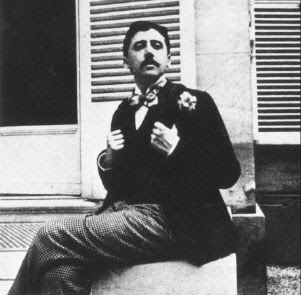Alec Niedenthal—
The NOON reading is tonight at 7Pm. Readers include: Kim Chinquee, Sara Jaffe, Tao Lin, Lincoln Michel (yay Lincoln!), Dylan Nice, Diane Williams, Anya Yurchyshyn. It’s at the Center for Fiction (17 E. 47th Street), and if you are going, please RSVP to 212.755.6710. This is the reading-equivalent of Lollapalooza or at least Pitchfork Fest. Looks like there will be free wine and chairs.
Also, if you are in Florida, next Friday Justin Taylor, Amy McDaniel, Alexis Orgera and I are reading here in Sarasota. On Saturday, we’re doing a panel on “reading style.” There’s a Facebook event.

 I’m baffled by the back cover of my
I’m baffled by the back cover of my  Throughout the nineties and for the first half of the past decade, there were two dominant strains of sitcom: the blue-collar/white-collar family sitcom (Roseanne, Everybody Loves Raymond, Fresh Prince of Bel-Air, Frasier, etc.), and the five-or-so-friends-hanging-out-in-a-city sitcom (Seinfeld, Friends, Cheers, etc.). The former culminated and withered with the end of Everybody Loves Raymond–now most often reiterated ironically by The Simpsons (which was far ahead of its time in that respect) and Family Guy–while the latter still persists in a way, only disguised or retooled as the workplace sitcom (30 Rock, The Office, Parks and Recreation, Party Down), a formula which began in part with Murphy Brown and, in its current mode, with Scrubs and the British Office.
Throughout the nineties and for the first half of the past decade, there were two dominant strains of sitcom: the blue-collar/white-collar family sitcom (Roseanne, Everybody Loves Raymond, Fresh Prince of Bel-Air, Frasier, etc.), and the five-or-so-friends-hanging-out-in-a-city sitcom (Seinfeld, Friends, Cheers, etc.). The former culminated and withered with the end of Everybody Loves Raymond–now most often reiterated ironically by The Simpsons (which was far ahead of its time in that respect) and Family Guy–while the latter still persists in a way, only disguised or retooled as the workplace sitcom (30 Rock, The Office, Parks and Recreation, Party Down), a formula which began in part with Murphy Brown and, in its current mode, with Scrubs and the British Office. I’m almost finished reading Light in August. It’s my first Faulkner. Starting at roughly the halfway point it grew into one of the most complex novels I’ve ever read; I’d like to write a fattish pamphlet on this book someday. But what I’d like to focus on here, in broad strokes, is a question regarding “how” rather than “what,” of logic and not of contradiction–specifically how Faulkner produces flat characters, that is, flat characters with depth.
I’m almost finished reading Light in August. It’s my first Faulkner. Starting at roughly the halfway point it grew into one of the most complex novels I’ve ever read; I’d like to write a fattish pamphlet on this book someday. But what I’d like to focus on here, in broad strokes, is a question regarding “how” rather than “what,” of logic and not of contradiction–specifically how Faulkner produces flat characters, that is, flat characters with depth. There is a split in experimental fiction, it would seem, which is hardly a split: a duality which is hardly dual. Articulating it, in addition, will not add to or subtract from what I’m provisionally calling “experimental fiction.” I am not going out of my way to break open or unmask a binary which has, till now, subsisted in relative silence. The following is a brief and incomplete diagnosis–neither positive nor negative, or else both at once. Most importantly, perhaps, these are not two distinct regimes (again, a split which is hardly, or is not, a split). Nor should this be taken as a statement of fact, but as a condition which I’ve begun, more and more, to see in what I read.
There is a split in experimental fiction, it would seem, which is hardly a split: a duality which is hardly dual. Articulating it, in addition, will not add to or subtract from what I’m provisionally calling “experimental fiction.” I am not going out of my way to break open or unmask a binary which has, till now, subsisted in relative silence. The following is a brief and incomplete diagnosis–neither positive nor negative, or else both at once. Most importantly, perhaps, these are not two distinct regimes (again, a split which is hardly, or is not, a split). Nor should this be taken as a statement of fact, but as a condition which I’ve begun, more and more, to see in what I read.